简体中文
繁體中文
English
Pусский
日本語
ภาษาไทย
Tiếng Việt
Bahasa Indonesia
Español
हिन्दी
Filippiiniläinen
Français
Deutsch
Português
Türkçe
한국어
العربية
The Role of Forex Brokers Explained
Abstract:The foreign exchange market, commonly known as forex, stands as the world's largest financial arena, boasting daily trading volumes in the trillions of dollars. For those eager to capitalize on currency fluctuations, entering this dynamic yet intricate market necessitates the guidance of a skilled intermediary: the forex broker.
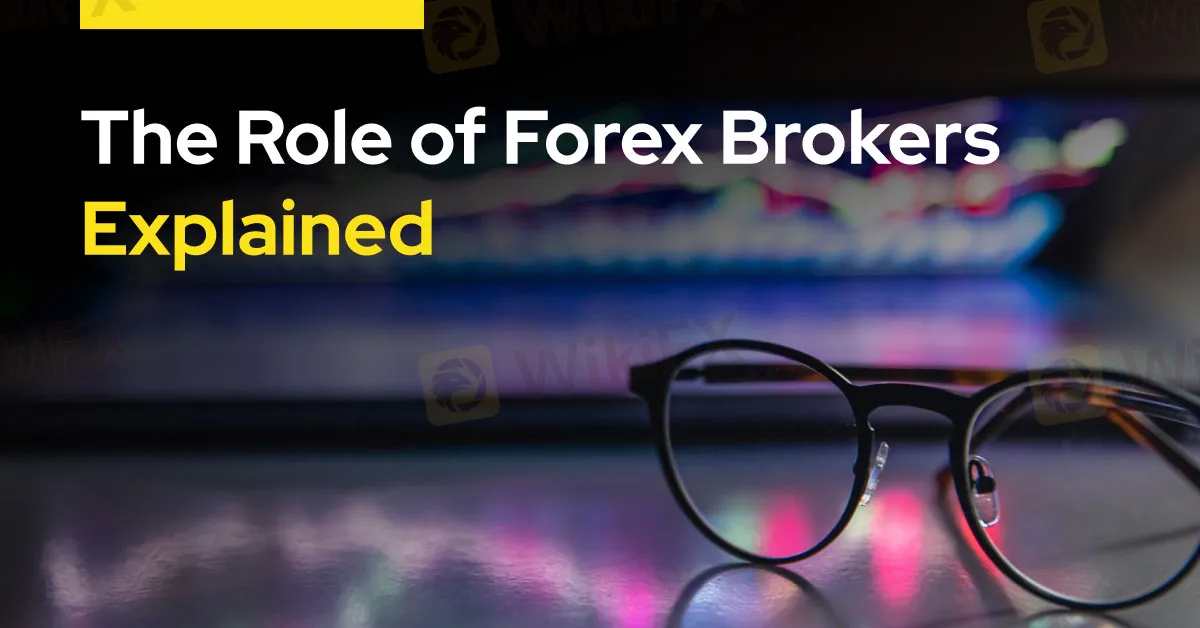
The foreign exchange market, commonly known as forex, stands as the world's largest financial arena, boasting daily trading volumes in the trillions of dollars. For those eager to capitalize on currency fluctuations, entering this dynamic yet intricate market necessitates the guidance of a skilled intermediary: the forex broker.
The foreign exchange market, commonly known as forex, stands as the world's largest financial arena, boasting daily trading volumes in the trillions of dollars. For those eager to capitalize on currency fluctuations, entering this dynamic yet intricate market necessitates the guidance of a skilled intermediary: the forex broker.
Unlike stock exchanges that operate from centralized locations, the forex market is a decentralized network of banks and financial institutions that trade currencies electronically. For retail traders, direct access to this interbank market is nearly unattainable. This is where forex brokers play a crucial role.
Forex brokers serve as intermediaries, linking traders to the expansive forex market. They provide user-friendly online trading platforms that enable the buying and selling of currency pairs (e.g., EUR/USD). These platforms are designed with intuitive interfaces that offer real-time quotes, charting tools, and order execution capabilities. Additionally, brokers provide the benefit of leverage, allowing traders to control larger positions with a smaller initial investment. However, it is important to note that leverage can amplify both potential profits and potential losses, making it a double-edged sword. Forex brokers also ensure liquidity by maintaining a steady flow of buyers and sellers for the currency pairs you trade, which is crucial for smooth and timely trade execution. Moreover, many brokers offer extensive market analysis and educational resources to help traders make informed decisions. These resources include detailed research tools and insightful market commentary that can enhance a trader's understanding of market dynamics.

Leading forex brokers offer more than just access to the market. Reliable customer support is a critical feature, especially for new traders who may need assistance navigating the complexities of forex trading. Customer service can provide guidance on platform use, trading strategies, and troubleshooting issues, ensuring a smoother trading experience. Competitive spreads are another significant aspect, as the spread—the difference between the buying and selling price of a currency pair—directly affects profitability. Brokers that offer tighter spreads enable traders to retain a larger portion of their profits. Furthermore, brokers cater to traders with varying levels of experience by offering different types of accounts. These accounts come with distinct features and minimum deposit requirements, allowing traders to choose the one that best suits their needs. Advanced order types, such as stop-loss and take-profit orders, are also available to help manage risk and automate trading strategies. These features are essential for implementing disciplined and effective trading plans.

With a plethora of forex brokers available, making the right choice is critical. When selecting a broker, consider factors such as regulatory status, platform features, fees, customer support, and available research tools. A global broker regulatory query platform like WikiFX can be particularly useful in this process. WikiFX allows you to research and compare different forex brokers by checking their regulatory status, reading user reviews, and assessing the features they offer. This level of transparency empowers you to make well-informed decisions, ensuring that you choose a broker aligned with your trading goals and risk tolerance. Download your free WikiFX mobile application from Google Play/App Store now, or visit www.wikifx.com.

Disclaimer:
The views in this article only represent the author's personal views, and do not constitute investment advice on this platform. This platform does not guarantee the accuracy, completeness and timeliness of the information in the article, and will not be liable for any loss caused by the use of or reliance on the information in the article.
Read more
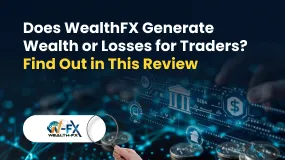
Does WealthFX Generate Wealth or Losses for Traders? Find Out in This Review
The name WealthFX sounds appealing for all those wishing for a rewarding forex journey. However, behind the aspiring name are multiple complaints against the Comoros-based forex broker. These trading complaints dampen the broker’s reputation in the forex community. In this WealthFX review article, we have shared some of these complaints here. Take a look!
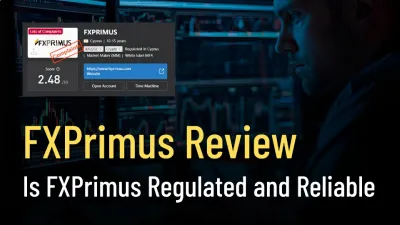
FXPrimus Review: Is FXPrimus Regulated and Reliable for 2025?
FXPrimus is a CySEC-regulated forex broker offering MT4, MT5, and WebTrader with flexible leverage and diverse trading instruments since 2009.
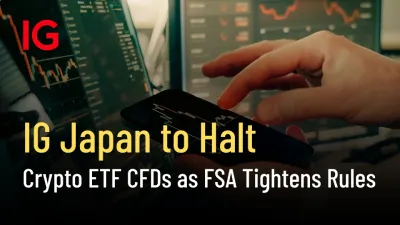
IG Japan to Halt Crypto ETF CFDs as FSA Tightens Rules
IG Japan will end cryptocurrency ETF CFDs after new FSA guidance, forcing traders to close positions by January 31, 2026, under stricter crypto rules.
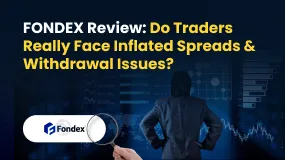
FONDEX Review: Do Traders Really Face Inflated Spreads & Withdrawal Issues?
Does FONDEX charge you spreads more than advertised to cause you trading losses? Does this situation exist even when opening a forex position? Do you witness customer support issues regarding deposits and withdrawals at FONDEX broker? Does the customer support official fail to explain to you the reason behind your fund loss? In this article, we have shared FONDEX trading complaints. Read on!
WikiFX Broker
Latest News
The Debt-Reduction Playbook: Can Today's Governments Learn From The Past?
Trillium Financial Broker Exposed: Top Reasons Why Traders are Losing Trust Here
FIBO Group Ltd Review 2025: Find out whether FIBO Group Is Legit or Scam?
Amillex Withdrawal Problems
Is INGOT Brokers Safe or Scam? Critical 2025 Safety Review & Red Flags
150 Years Of Data Destroy Democrat Dogma On Tariffs: Fed Study Finds They Lower, Not Raise, Inflation
CQG Partners with Webull Singapore to Power the Broker’s New Futures Trading Offering
【WikiEXPO Global Expert Interviews】Ashish Kumar Singh: Building a Responsible and Interoperable Web3
Trump: India\s US exports jump despite 50% tariffs as trade tensions ease
IEXS Review 2025: A Complete Expert Analysis
Currency Calculator




